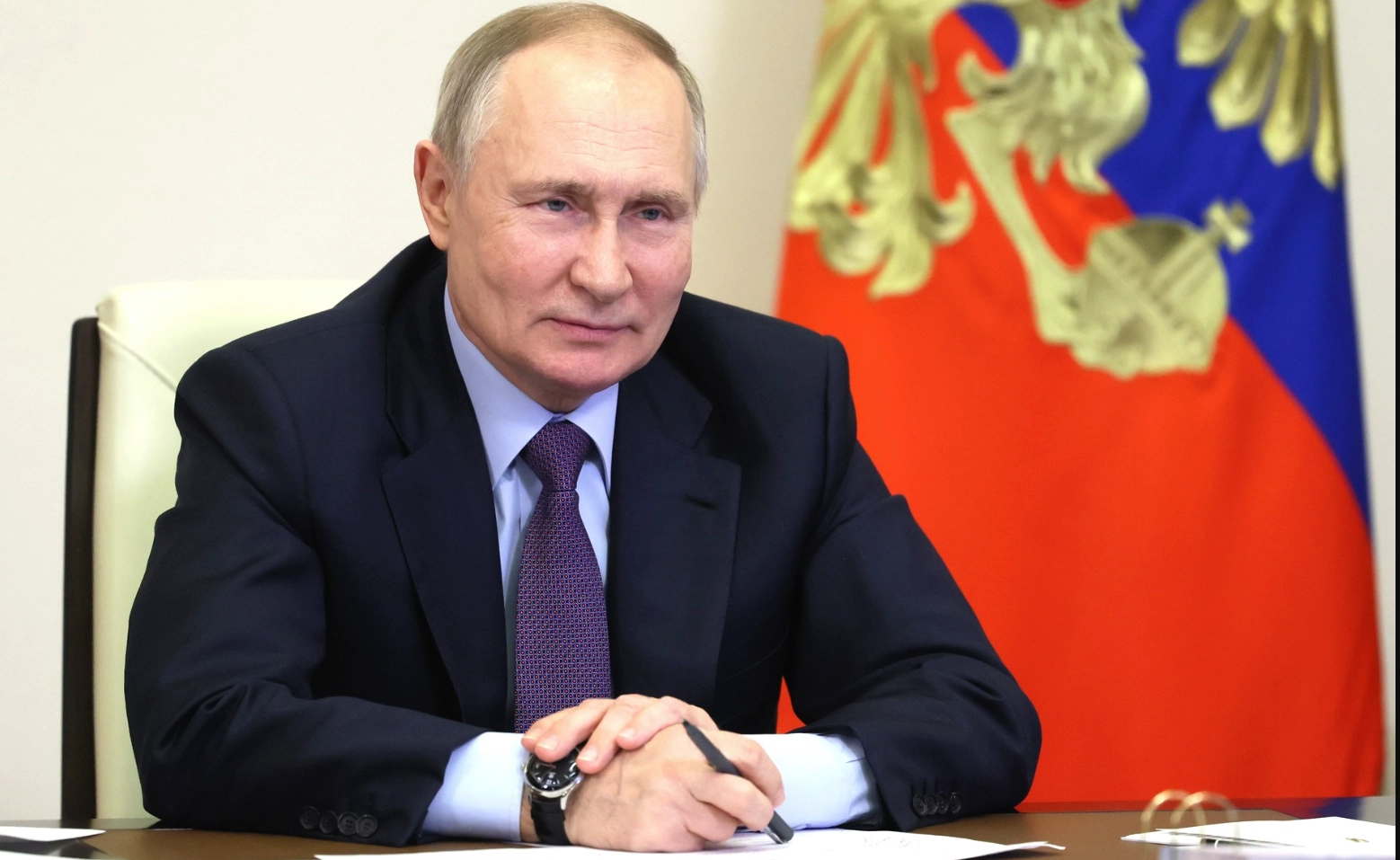The general elections were held in Russia and everything went as planned by the Kremlin. The formal report from the electoral authority announced that, after three days of voting, the official candidate Vladimir Putin triumphed with more than 87% of the votes. Thus, next Tuesday, May 7, 2024, at 71 years old, he will begin his fifth term as president of the largest country in the world. The constitution prescribes that the mandate will be extended for six years, and he may be re-elected if he also triumphs in the following elections.
Despite some opposition attempts, linked to the murdered Alexei Navalny, no political protests were recorded. Neither in Russia nor abroad, where, in addition, it was possible to vote in diplomatic headquarters, even in areas belonging to Ukraine and occupied by the Russian armed forces.
The Russian government stated that voter turnout was high, even higher than in previous votes. They also assured that electronic and advanced voting by email had no problems, nor did it cause complaints. The former Russian News Agency (survivor of the Soviet Union) noted that there were 129 observer countries to certify the transparency of the elections.
The ruling party candidate was not the only one available to be elected. Three more parties competed with United Russia, the organization founded by Putin, which heads a coalition called the All-Russian Popular Front. However, none of the candidates from these formations reached 5% of the votes (they obtained 4.31%, 3.85% and 3.20% respectively). On the other hand, they did not represent an alternative, even a moderate one, to Putin’s power.
What they show as virtuous in the electoral process is that the three candidates who competed against Putin recognized the legitimacy of the vote. The next day, they met with the new winner to commit to working together. And they took a photograph that was widely disseminated by the Russian government and its agencies.
Is the reality the only truth?
Formality and scenes set up by power cannot hide reality. The Royal Spanish Academy defines “farce” as an action carried out to pretend or appear. And it is an excellent word to describe the electoral process that took place in Russia these days. But farce does not mean comedy nor does it mean that at the top of Russian power they consider it unimportant. Quite the opposite.
The elections also highlighted the need to internally show the validity of Putin’s power and send a message to the international community. His external pretensions are still running and reinforced. Paradoxically, he may be more decisive for the future of his elections in the United States than his own.
Even without real competition, elections call into question the leadership of the elite that supports it, in this case, an alliance of social sectors, regional oligarchies, economic, military and intelligence groups. The leader exposes himself to them and seeks to increase his autonomy from them. Even more so after so much time in power, with the wear and tear of the passage of time, and, above all because there are beginning to be rumors about possible successors. That is why he dedicated much of the last five years to guaranteeing his victory and avoiding surprises and unforeseen events.
Beyond the context, an electoral call can generate uncertainty since its dynamics cannot be fully controlled. In Latin America, we have very graphic examples. The Chilean plebiscite of 1988 marked the beginning of the transition and decline of the then-all-powerful General Augusto Pinochet. Years before, another plebiscite was held in Uruguay in 1980, which mortally wounded the military dictatorship that then ruled the country with an iron fist.
The state is me (for now)
Already in 2020, Putin had added various amendments to the Russian Constitution that lifted formal barriers to re-election. The reform ruled out considering previous presidential terms as limitations to holding office again. Therefore, Putin can be elected in 2030.
In addition, it incorporated other regulations to make the path of opponents difficult. It incorporated the obligation to reside in Russia for a minimum of twenty-five years (previously it was ten) and not have had citizenship or residence in third countries. These measures (which also include ministers and judges) aim to block exiled leaders or those who intend to conduct their campaigns from abroad. This may have been one of Navalny’s motivations for returning to Russia.
Not satisfied with that, Putin systematically dedicated himself to outlawing, persecuting, and killing any opposition leader or group or anyone who confronted his policies. In this context, Navalny’s crime is more understandable. Not only he was his main electoral rival, but also his possible successor in some corridors of power.
Boris Nadezhdin, another well-known oppositionist, and the only openly pacifist, was also left out of the electoral offer. Speaking to Le Grand Continent, he stated: “I don’t want to become a blogger, organize demonstrations, directly attack Vladimir Putin or criticize his regime very harshly. I know the limits. I will not act like Navalny. I want to oppose it, but I want to stay alive and free. I don’t want to end up in jail or be poisoned with Novitchok. So with me there will be no revolution.”
Furthermore, the electoral system organized using uncontrolled software reinforced the fear of opponents of being identified, and then punished, if they did not elect the current president. On the other hand, no independent electoral observation organization was present, and even fewer endorsed the transparency of the process. Those who were quick to congratulate the winner were the leaders of Belarus, Syria, Venezuela, Cuba, North Korea, Iran, and China.
Aftermath
The elections were used to plebiscite the war conflict with Ukraine, reinforce support for the military offensive and use the confrontation with the West as a way to gather and mobilize support. It is also necessary to point out that Putin has a large popular support indicated even by the few independent pollsters which work in the country. Nationalism and the anti-Western reaction have their weight. But also an economy that has not yet suffered the weight of war and even less of international sanctions.
Undoubtedly, in Latin America Venezuela is its most advantaged student. The persecution of opponents, especially María Corina Machado and, above all, the kidnapping and death of Ronald Ojeda in Chile, show that we are not that far from having our own Russia in the region. In this scenario, it will be necessary to see who Ukraine will be.
At this point, the Russian elections bring to the fore what is the fundamental discussion that must be faced in the world today. We must delve into the character of democracy, its inescapable link with freedom, and, above all, rethink the role of all states, groups, and people who are determined to put limits on this autocratic revival.
*Text originally published in Diálogo Político












